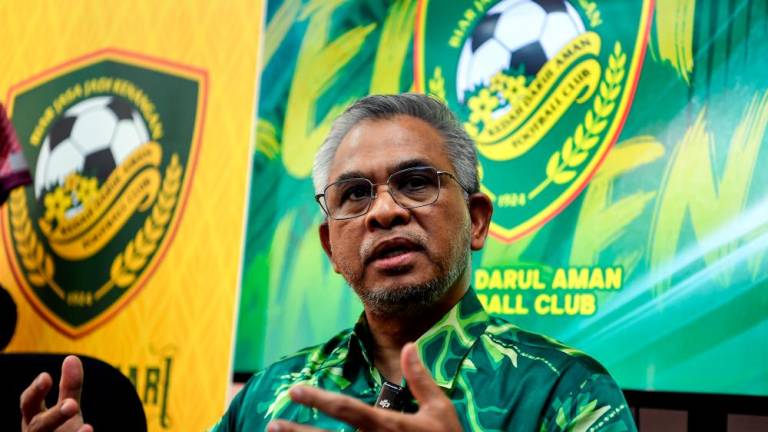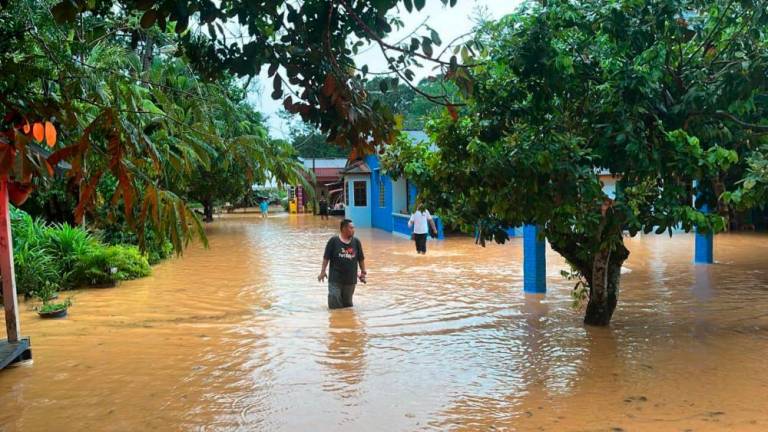THE political imbroglio that surfaced at the beginning of this year has lent credence to the assumption that politics is an opportunistic game. Although people elect politicians to represent them, the trust is not binding.
All politicians are chosen by their respective parties that provide financial support and campaign machinery, through which they convince the electorate that they and their parties are committed to serving the people.
Although they project an altruistic image, their loyalty is determined by prevailing circumstances. When a conflict of interest arises with the party, self-preservation gets priority notwithstanding that the party was instrumental in getting them elected. Thus, when opportunity strikes, they abandon bonds of trust and principles of integrity.
This has been evident in Malaysian politics, especially in Sabah and Sarawak, where history has shown a number of politicians abandoning their parties in search of a safe political haven.
This was evident when Barisan Nasional lost in the 14th general election in 2018. A good number of politicians abandoned a leading party in droves even though this was the party that got them elected. They had no qualms leaving the party in a lurch. Their earlier pledge of “we swim and sink together” did not hold water.
When the ship leaked, they jumped overboard instead of plugging the leak. These politicians moved to greener pastures by joining the new ruling party or became ruling party-friendly independents.
This attitude of politicians fending for themselves to serve their personal agenda was evident in the recently deposed ruling coalition, Pakatan Harapan. The leaders of the coalition did not have a unified vision of governance leading them to scramble for positions and affiliations that served their agenda.
A number had no reservations cooperating with their ideological rivals if it achieved their objectives, just like the character Mephistopheles in the opera Faust.
PH leaders reneged on their promises and there was a lack of trust as their sardonic smile hid their true sinister intentions.
These leaders played a part in the PH government’s fall and replaced it with a new tenuous ruling political entity composed of former friends and foes.
As a result of this political quagmire, the people are in a quandary as to whom they can trust. They can no longer totally depend on their elected representatives to remain steadfast to their initial commitment of serving the electorate who voted for them and their parties.
The peoples’ voting rights no longer carry much weight to select a government of the people, by the people and for the people. They merely exercise the formality of voting but beyond that they have no say as the elected representatives serve their own and their party’s agenda when it suits them.
However, amid this political turmoil caused by the unrestricted mobility of elected representatives within the political milieu, there exists a kind of etiquette and decorum among the members and elected representatives of MCA, PAS, DAP and Amanah who have stayed with their parties through thick and thin. Almost all the MCA and DAP politicians and members are steadfast and guided by their parties’ vision.
Leaving aside the rupture with Amanah over to ideological differences, PAS has always galvanised and rallied its members through unwavering faith.
Other parties have reneged on promises and shrugged off integrity, etiquette and decorum. The “guilty” politicians overarching influence has eclipsed the serious altruistic politicians whose sane voices have been drowned by those scrambling for power and position.
As Covid-19 imposes new norms in our lifestyles, this political turmoil and uncertainty seems to be the new norm in our political arena.
Mohamed Ghouse Nasuruddin is with the Centre for Policy Research and International Studies, Universiti Sains Malaysia.












